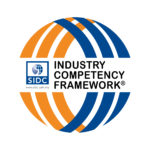Derivatives E-Learning Advanced Series (DELA):
An e-learning programme comprising of 6 topics covering trading strategy in crude palm oil futures and index futures contracts and its role as a portfolio risk management as well as a trading and investment tool.

Derivatives products such as the futures crude palm oils, index futures are becoming popular, mainly used as a risk managing mechanism to offset exposures due to price fluctuations of the underlying instruments. Market players such as fund managers, palm oil producers and derivatives traders are able to benefit from derivatives trading where the contracts traded would be able to manage the uncertainties of price fluctuations and generate potential opportunities in trading and investment.
This Derivatives E-Learning Advanced Series (DELA) comprises of 6 topics covering trading strategy in crude palm oil futures and index futures contracts and its role as a portfolio risk management as well as a trading and investment tool. All these and many more will be covered in this e-learning Series.
Programme Objective
This e-learning is designed to equip and provide participants with a deeper understanding and application on roles of crude palm oil futures and index futures in trading and investment; strategies used in trading futures contracts, risk management and the potential trading opportunities.
Learning Outcomes
Upon completion of this e-learning programme, participants will be able to:
- Explain the importance of derivatives products as well as its role in risk management for trading and investment
- Identify the strategies used in derivatives trading and its potential opportunities
- Analyse, assess and manage the risks associated with the derivatives products when executing trading strategies
- Describe the various patterns, indicators, and techniques used in studying the price behaviour by using technical analysis
Competency Level
 |
|
Methodology:
Derivatives E-Learning – Advanced Series (DELA) is conducted online via SIDC’s Learning and Assessment Management (LAMS) platforms and derivatives trading simulation is conducted via Bursa Marketplace.
Target Audience:
- CMSRLs and Professional Derivatives Traders
Programme Outline
Recommended Learning Hours: 75 Minutes
Overview
Learning about derivatives is essential for everyone who wishes to diversify their investment portfolio into derivatives market. This module will explain what derivatives is, types of derivatives instrument and the main roles or uses of derivatives instruments in business and investment, followed by an overview of the concept of risk and risk management in trading.
Objective
Upon completion of this module, participants will be able to:
- Explain roles of derivatives in business and investment.
- Differentiate between over-the-counter and exchange traded derivatives
- Identify the types of derivatives instruments and the main uses of the instruments
- Describe the concept of risk in investment
Modules
DELA01: Functions of FCPO in Palm Oil industry
- Overview of the palm oil universe
- Determining factors of palm oil prices
- The role of FCPO
- Risk transfer
- Price discovery
- Promote market efficiency
DELA02: FCPO Risk Management & Spread Trading Strategies*
- Hedging- Concepts & Rationale
- Risk management and hedging strategies using FCPO
- FCPO Spread trading – Intra & Inter commodity spreads strategies
*Case study: FCPO Trading Strategy
Recommended Learning Hours: 75 Minutes
Overview
Derivatives instruments such as the index futures are becoming popular amongst fund managers and equity traders. Used as a risk managing mechanism by offsetting exposures due to share price fluctuations, these market players able to generate potential opportunities by trading with index futures.
This e-learning series will uncover the application of FKLI trading strategies to manage equity price risk and capitalise on the potential opportunities that it brings.
Objective
Upon completion of this module, participants will be able to:
- Explain the importance of FKLI in managing the equity portfolio.
- Identify the derivatives trading strategies used in the equity/stock market
- Discuss how and when a strategy is best to be implemented
- Analyse the role of FKLI in risk management in managing equity portfolio risks
Modules
DELA03: Importance of FKLI/FM70 for Fund Manager and Equity Traders
- FTSE Bursa Malaysia KLCI Index Futures (FKLI) Contract and its underlying asset, FTSE Bursa Malaysia KLCI
- The role of FKLI in managing equity portfolio risks
- Access to the underlying stock/equity price – Price discovery
- Risk managing mechanism – Risk reduction and redistribution through Hedging
- Review and replace the exposures of equity portfolio
DELA04: FKLI Trading – Directional and Spread Trading Strategies*
- Hedging – Protection and Asset allocation strategy
- Arbitrage – Low to risk free profit strategies
- Index Spreads – Risk Mitigated trading strategies
*Case study: FKLI Trading Strategy
Recommended Learning Hours: 75 Minutes
Overview
Technical analysis is a study of price patterns to identify trading and investment opportunities in derivatives market. It is about charting data and interpreting the chart using technical tools and techniques. Moving average is a technical analysis tool to understand and forecast market direction beginning with the process of price analysis by plotting the average prices over a defined period of time and typically overlaid onto a candlestick or bar chart as a guide in executing appropriate trading strategies in derivatives trading.
Objective
Upon completion of this module, participants will be able to:
- Describe technical analysis and the basic assumptions
- Interpret chart, patterns and trends of the historical market price
- Describe the types of moving average
- Explain market direction using moving average
- Discuss the trading strategies using moving average
Modules
DELA05: Technical Analysis in Derivatives Trading
- Overview of technical analysis and the assumptions
- Basic type of charts in technical analysis
- Interpreting chart, pattern and trend
DELA06: Trading Derivatives using Moving Average
- Types of moving average
- Identify market direction using moving average*
- Moving average trading strategies*
*Case study: Trading FKLI and FCPO using Technical Analysis




